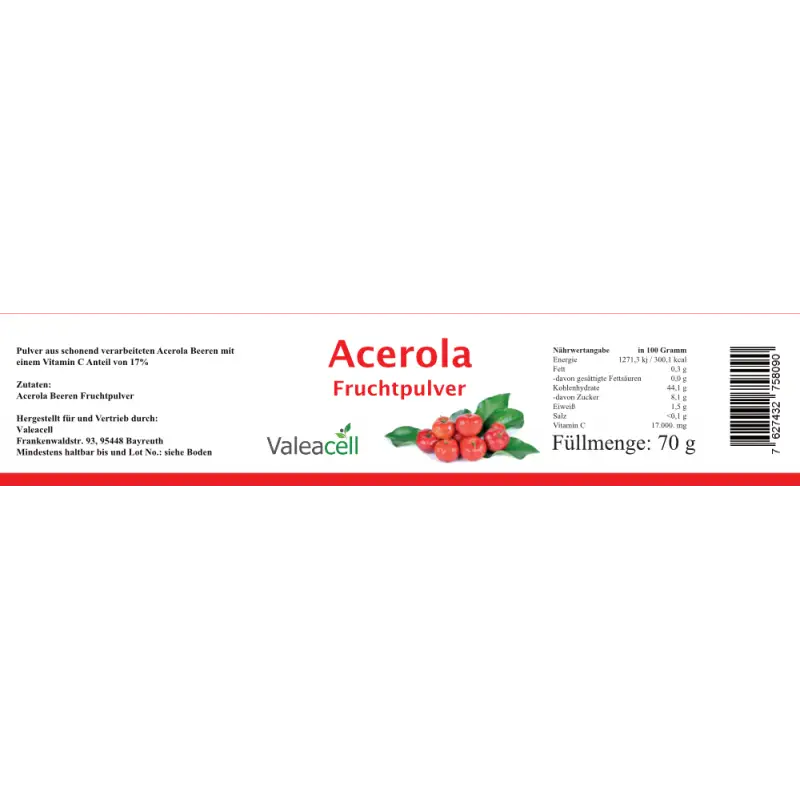The acerola fruit grows mainly in South America. Because of its similar appearance, acerola is often called a cherry, even though it has nothing to do with a cherry. The acerola fruit has one of the highest known vitamin C contents of any fruit. This is 17% in the fruit we process.
Vitamin C can have a supportive effect on many health issues. Here are the ones we use according to Health Cliemes
Ø contributes to the normal functioning of the immune system and nervous system
Ø contributes to normal collagen formation for the normal function of blood vessels, bones and cartilage function
Ø contributes to normal collagen formation for the normal function of gums, skin and teeth
Ø contributes to the reduction of tiredness and fatigue
Ø contributes to normal psychological function
Ø helps to protect cells from oxidative stress
Ø contributes to the regeneration of the reduced form of vitamin E
Ø increases the absorption of iron
The taste of the berry is slightly tart and a little sour. Acerola powder tastes particularly good in apple, grape or orange juice. Acerola powder is also suitable for cooking, e.g. for desserts or as an ingredient in game dishes.
| Nutritional values | in 100 g | in 5 grams |
| Energy | 1271.3 kJ/ 300.1 kcal | 63.57 kJ/ 15 kcal |
| - of which saturated fatty acids |
| ,0 g |
| .0 g |
| - of which sugar |
| .1 g |
| .41 g |
* % NRV = % nutrient reference values (according to Regulation (EC) No. 1169/2011)
| Vegan | yes | Gluten-free | yes | GMO-free | yes |
| You can stir acerola powder into water or simply sprinkle it over your muesli in the morning. There is no generally valid consumption recommendation for foods. In practice, a dosage of approx. 1 teaspoon per 150 ml of water has proven to be effective. |
| Milk | no | Eggs | no | Cereals containing gluten |
| Cereals | no |
| Sulphur | no | Fish | no | Crustaceans | no |







